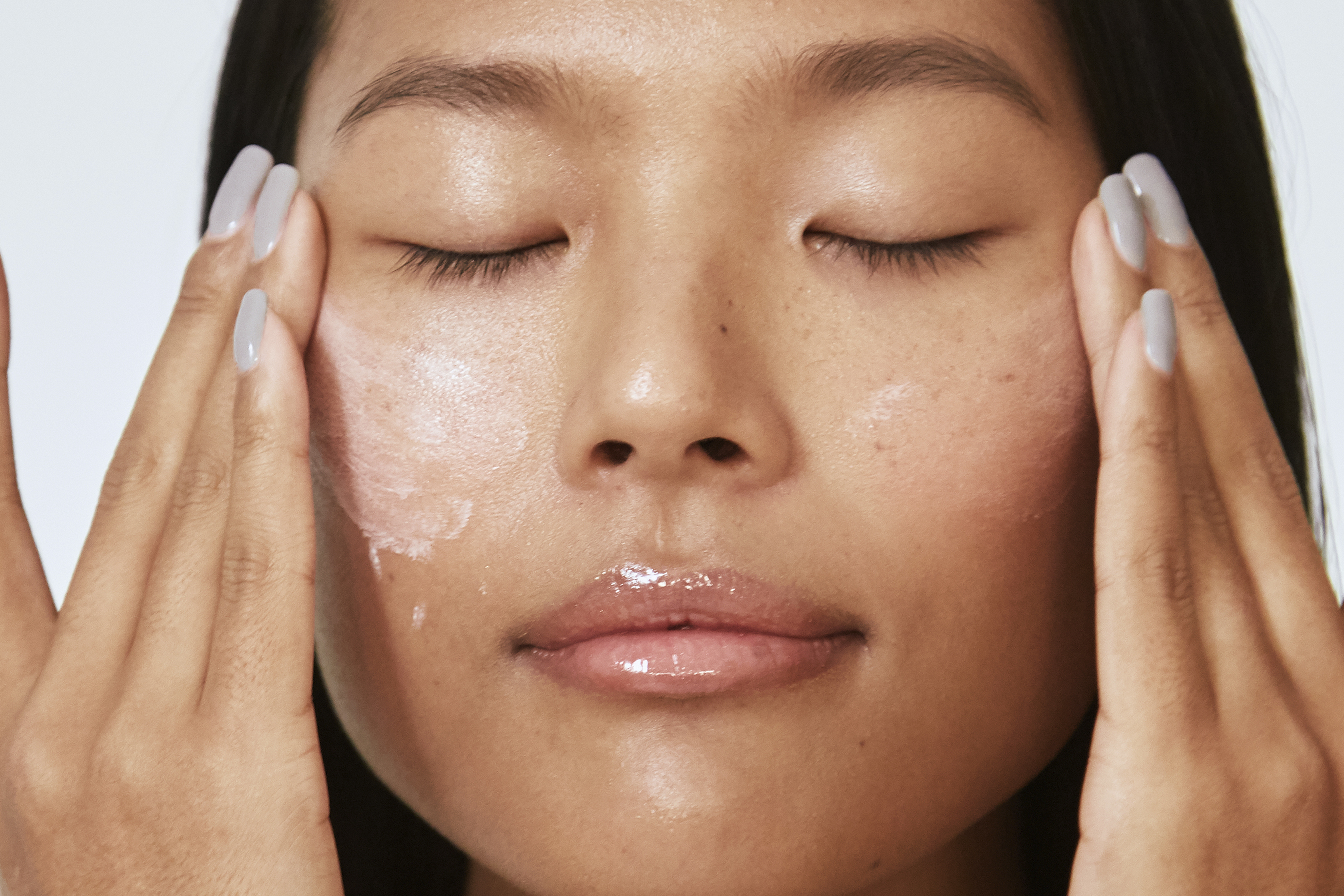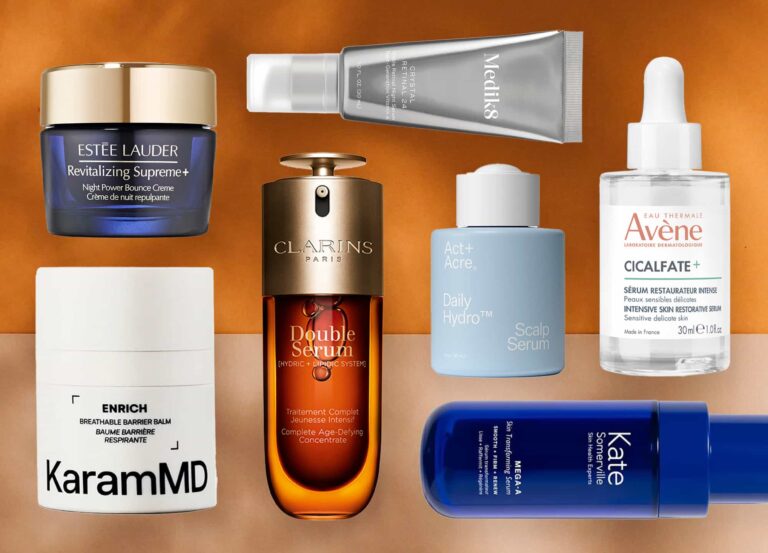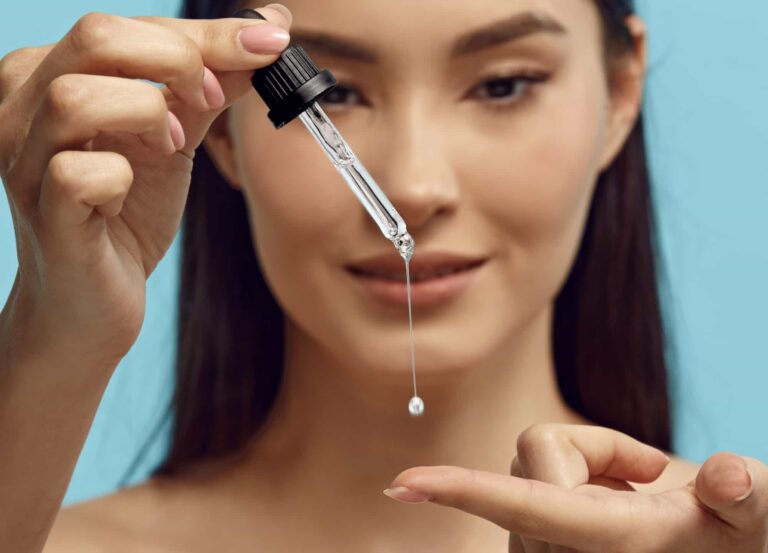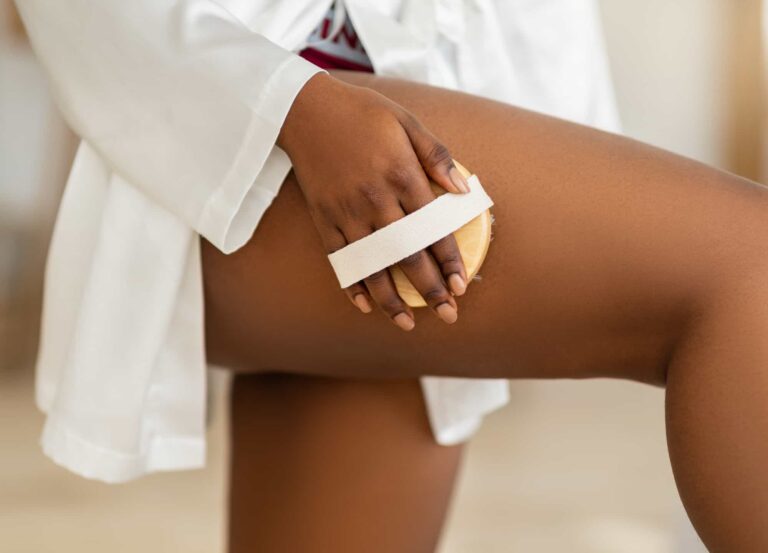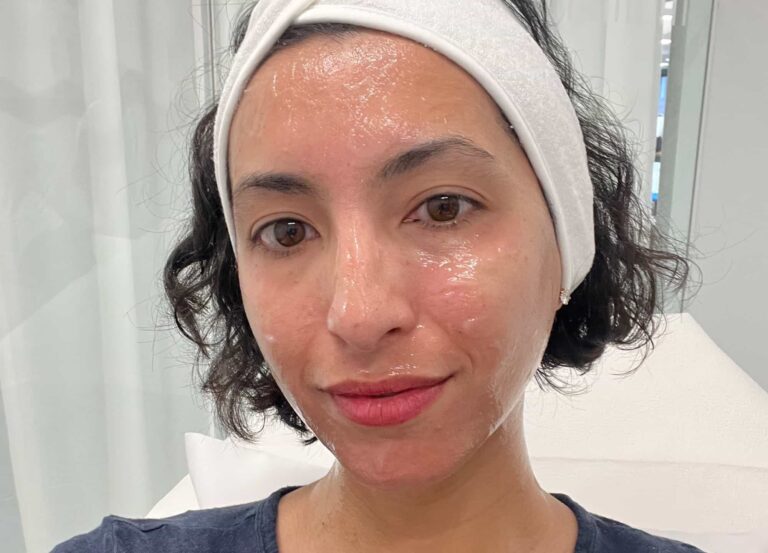It feels like there’s always a reason to be stressed these days, whether about an upcoming work presentation or a sick family member. The relationship between stress and skin can only make matters worse: the effects of stress on skin can range from acne breakouts to premature aging. Yes, anxiety can do real damage to a complexion—but there’s good news too. Even when stress seems inevitable, there are ways to prevent, or at least manage, its effects on skin.
How stress can affect your skin
1. Stress impairs your skin barrier
Your skin barrier is essential for keeping skin balanced and hydrated, says Dr. Jaimie DeRosa, a board-certified facial plastic surgeon in Boston. Think of it as skin’s first line of defense against external aggressors as well as the seal that keeps moisture locked within. “Studies have shown that stress makes the stratum weaker and decreases its ability to retain water,” she says. “When this outer barrier is disrupted or is not functioning properly, the skin may become dry and itchy.”
2. Stress increases inflammation in the skin
Stress is responsible for elevating cortisol levels, which in turn affects the immune system and can cause inflammation. “Although we do not yet have a thorough understanding of the mechanisms, we do know that stress and anxiety can impact most inflammatory skin conditions, including acne, rosacea, psoriasis, eczema, hives, and alopecia areata,” says New York City board-certified dermatologist Dr. Hadley King, noting that it can cause flare-ups of all of these conditions.
3. Stress contributes to clogged pores
Beyond the inflammatory component of acne, stress can lead to breakouts through a different mechanism. “In response to stress, your body releases cortisol, a stress hormone,” says Dr. DeRosa. “Elevated levels of cortisol lead to an overproduction of oily sebum by the skin glands, which clogs the pores and may cause breakouts,” says Dr. DeRosa.
4. Stress accelerates signs of aging
With heightened inflammation also comes an increase in the level of enzymes that break down collagen and elastin, says Dr. King, which can accelerate signs of aging such as wrinkles and a loss in skin laxity.
5. Stress can worsen anxiety-related disorders
The other way that stress can majorly impact skin is through anxiety-related behavior—and while there are a number of disorders that fall into this category, the one that affects skin the most is picking. “Acne excoriée, also known as picker’s acne, results when acne lesions are compulsively squeezed and scratched, resulting in scabs and scars,” explains Dr. King. “This is often associated with underlying depression, anxiety, or other psychiatric issues.”
What skin conditions are affected by psychological stress?
In spiking inflammation, stress can worsen just about any inflammatory skin condition. “Both acute and chronic stress can affect your skin and exacerbate skin conditions you may already have, such as eczema, psoriasis, and acne,” says Dr. DeRosa. And, to Dr. King’s previous point, it can exacerbate skin conditions linked to anxiety.
What does stressed skin look like?
Though there’s no real way to know that stress is the culprit behind acne breakouts, rosacea flare-ups, signs of aging, and other unwanted skin occurrences, you can garner a better understanding through a simple process of elimination. “Really, the only way to determine this is by looking at other environmental factors—things like your diet, topical products, weather,” says Dr. Deanne Mraz Robinson, a board-certified dermatologist in Westport, Connecticut. “If none of those have changed and only the increase in stress is there, then it would be fair to connect the outbreak to stress. Often though, when we are stressed, we are also eating more sugar and drinking more alcohol, so chances are, if those are also factors in your situation, they may be more the culprit than the stress itself.”
How do you fix stressed skin?
For starters, stick with your skin-care routine. “Chronic stress is known to cause a so-called negative feedback loop—neglecting self-care and getting lax with your skin-care routines, like not washing your face before going to bed,” says Dr. DeRosa.
It’s also best to treat the various stress effects on skin with what you already know works for you. However, certain ingredients will be more effective than others. “If breakouts are truly stress-induced and temporary, then they can be treated with more of a reactive spot treatment versus a proactive, ongoing treatment approach for someone with chronic acne,” advises Dr. Mraz Robinson.
Depending on the type of acne, different ingredients can be used to help clear skin. For oily skin and clogged pores, Dr. King recommends using salicylic acid, while benzoyl peroxide and retinoids should be used for any moderate inflammatory acne. For severe inflammatory acne, she suggests isotretinoin, oral antibiotics, and intralesional cortisone injections. “We really treat stress-related flares of any of these conditions in the same way that we would treat the condition otherwise,” she says.
Can you reverse stress aging?
It’s impossible to entirely eliminate stress from our lives, but there are a few ways to prevent some of the havoc it can wreak on skin. “Drink lots of water, keep up your skin-care routine—I’d suggest antioxidant serum and SPF—and fuel up with healthy fats, like avocado oil and nuts,” Dr. Mraz Robinson recommends. “Avoid touching and tugging on your face, a common habitual movement when we’re stressed.” (And, of course, an easy way to get sick.)
Finally, Dr. DeRosa is a fan of hitting the pavement to improve both stress and skin. “Find something you like to do for exercise, be it cycling, running, or group exercises,” she says. “This will help combat stress through the sense of general well-being, and those ‘good workout hormones’ will elevate your energy and mood.”
Ultimately, it’s crucial to develop stress management techniques that, even when the anxieties are unavoidable, can help keep them manageable—and support both your skin and overall health.







